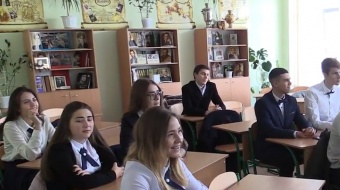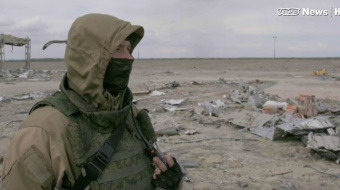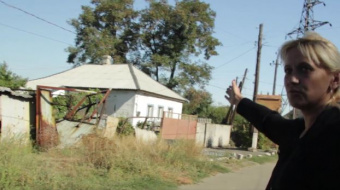How Croatia won separatism and why Ukraine is not Croatia. Part 1
How Croatia won separatism and why Ukraine is not Croatia. Part 1
In the conditions of the Russian military aggression the experience of other countries that have faced similar challenges became actual for Ukraine. In this context, they often referred to the experience of Croatia, one of few countries which managed to repel military aggression and to recapture its territory within the administrative boundaries.
This experience is especially interesting because it includes both military operations and political dialogue and peaceful reintegration. In Ukraine we decided to talk more about the military components of Croats success. The political component is less likely to say or we almost do not say about it.
With the support of the Civil Groups "Center for Peace", "Croatian Platform for International Citizen Solidarity", the Ukrainian Embassy in Croatia, and the "Ukrainian Initiative" in Croatia from 15 to 18 March the Croatian experience of the peaceful reintegration of the occupied territories was studied by the representative of "Donetsk Institute of Information" being a member of the Ukrainian delegation .
The program of visit to Croatia was full of meetings with former senior officials who were responsible for the process of reintegration and with local authorities in the territory which has been reintegrated both by military and peaceful means.
Background
Serbo-Croatian war began in 1991 and was caused by a desire of Croats to gain independence. In response, in the regions of Croatia with a higher percentage of the Serbian population there has been announced the establishment of the Republic of Srpska Krajina.
In the beginning of the conflict Yugoslavian People's Army has operated on the Serb side. Heavy battles were developed. The main problem of Croats in 1991, as well as of the citizens of Ukraine in 2014, was the lack of a functioning army, so initially the main blow was taken over by the police force and volunteers.
There was a shortage of weapons the lion's part of which was controlled by the Yugoslavian army controlled from the federal center. The situation was also complicated by a block on the delivery of arms to the war zone.
Croats had to organize the gun running. Officials would never admit it but those illicit channels have been operated under the cover of the Ministry of Internal Affairs some agents of which even had to bear criminal responsibility later. The Croatian diaspora helped also.
As a result of battles about 30% of Croatia was occupied, although the representatives of the Croatian side claim their opponent was originally planned to occupy 60% of the country taking away the final part of the Adriatic coast and implementing thus the idea of "Great Serbia."
Serbs almost managed to reach the coast of the sea on only one sector of the front, however, that allowed them to actually cut off a significant part of the coastal Croatia from the center of the country.
In 1992, the parties concluded the truce, but some collisions proceeded after this.
In 1995, the Croatian army conducted two operations "Lightning" and "Storm" in a blitzkrieg format, for a short time eliminating the largest Serbian exclave in the center and south of the country, i.e. the majority of Srpska Krajina.
The Croatian army had a plan for eliminating the remaining part of Srpska Krajina: Serbian autonomous region Eastern Slavonia, Baranja and Western Sirmium, but failed to implement it.
As a result of political negotiations in 1995 they have managed to reach an agreement on the peaceful reintegration of this territory into Croatia over the next few years. It was decided that before the end of this period, those areas will be managed by the UN Interim Administration.
As a result of the Serbo-Croat war there were killed about 20 thousand people, and hundreds of thousands became refugees. Compared to Russian aggression in Donbas the conflict was much more tough on a personal level. This was aided by its pronounced religious component (the Croats are Catholics, and Serbs are Orthodox) and a national component.
During the war, the facts of mass extrajudicial killings and ethnic cleansing were registered. Both sides were accused in the war crimes. These include the executions of more than 200 patients of Vukovar military hospital after the capture of the city by the Serbian army.
Museum in the shelter of Vukovar Hospital. There was a military hospital
The hospital is fully restored, but the memory left in the form of a hole in the ceiling which has been broken through by the 250-kg bomb that did not explode
Despite the agreement on the evacuation of the military hospital, the people many of which were wounded Croatian military men, have been taken out of town and then executed.
Please follow the link to read the 2nd part of the story
New service "Explain Ukraine". This is a daily mailout of five articles which were written about the situation in the Donbas by Donbas journalists and translated into English. Honest vision of people who work in the field is unbiased and fresh which is crucial in the world which is full of desinformation and propaganda. We try to share this vision in out daily mailout. You can subscribe here.














